Apollo 11 Mentioned In State Of The Union Speech

“In 2019 we also celebrate 50 years since brave young pilots flew one quarter of one million miles through space to plant an American flag on the face of the Moon. Half a century later, we are joined by one of the Apollo 11 astronauts who planted that flag, Buzz Aldrin. Thank you, Buzz. This year, American astronauts will go back to space in American rockets.”


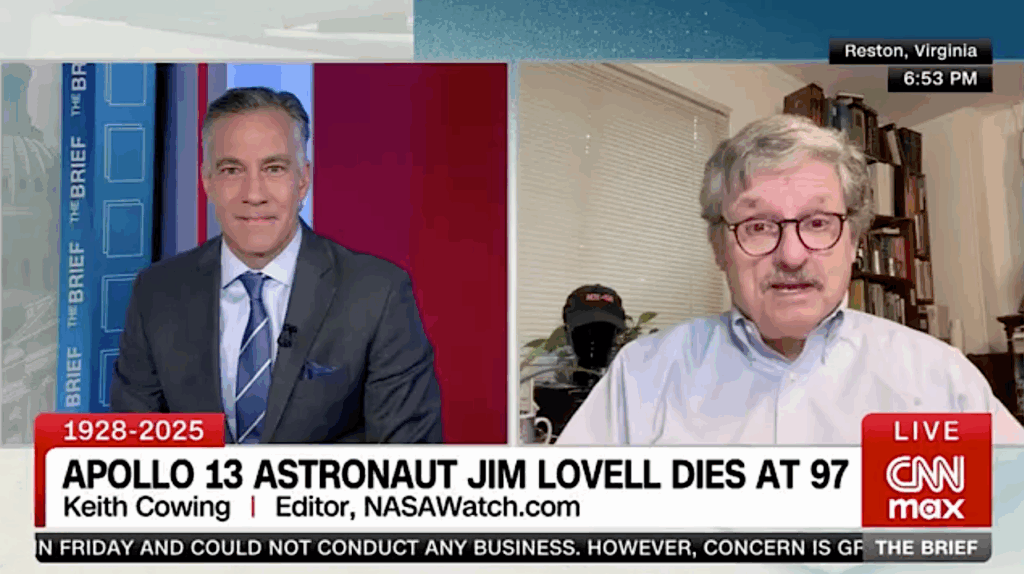
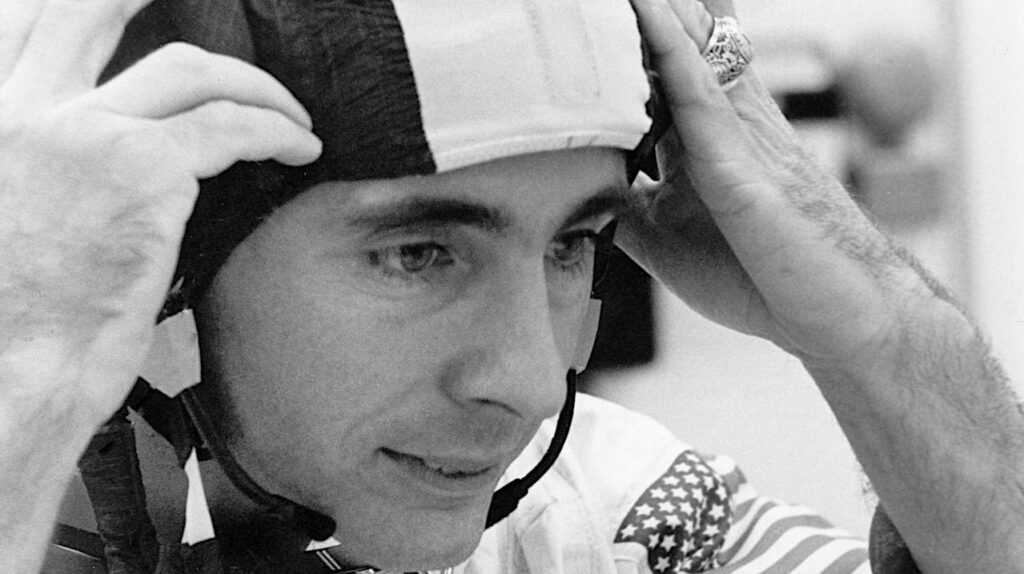
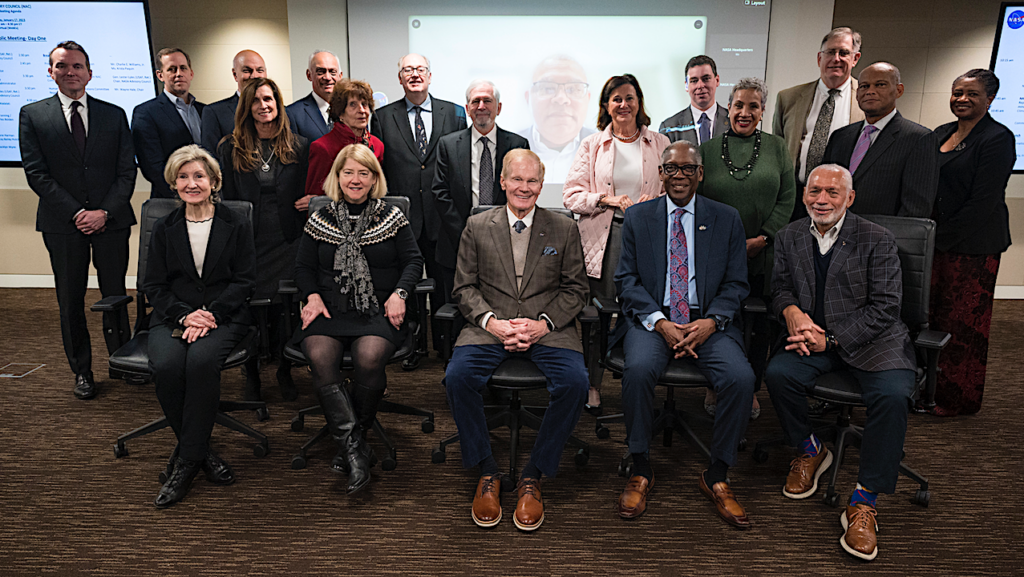
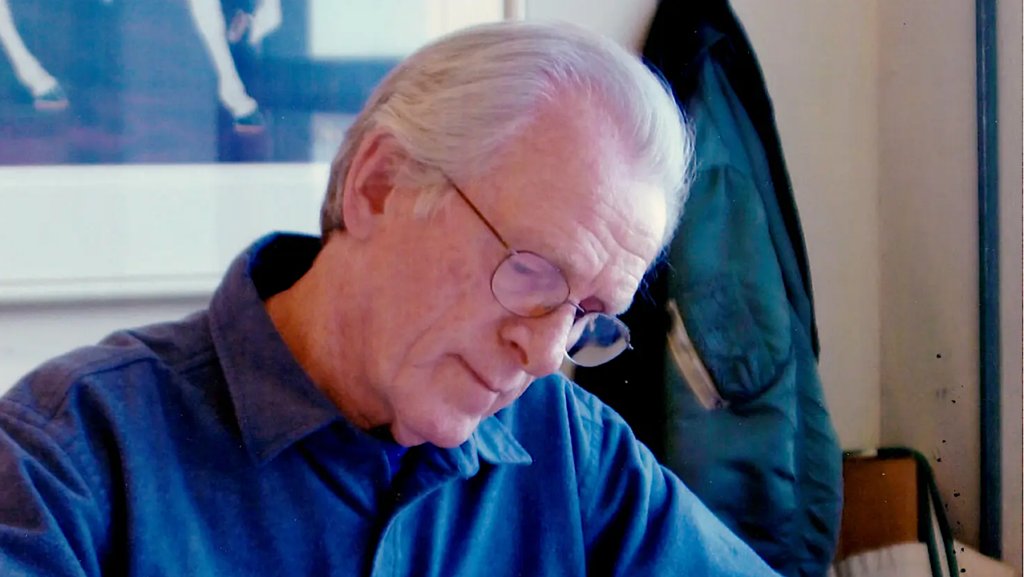
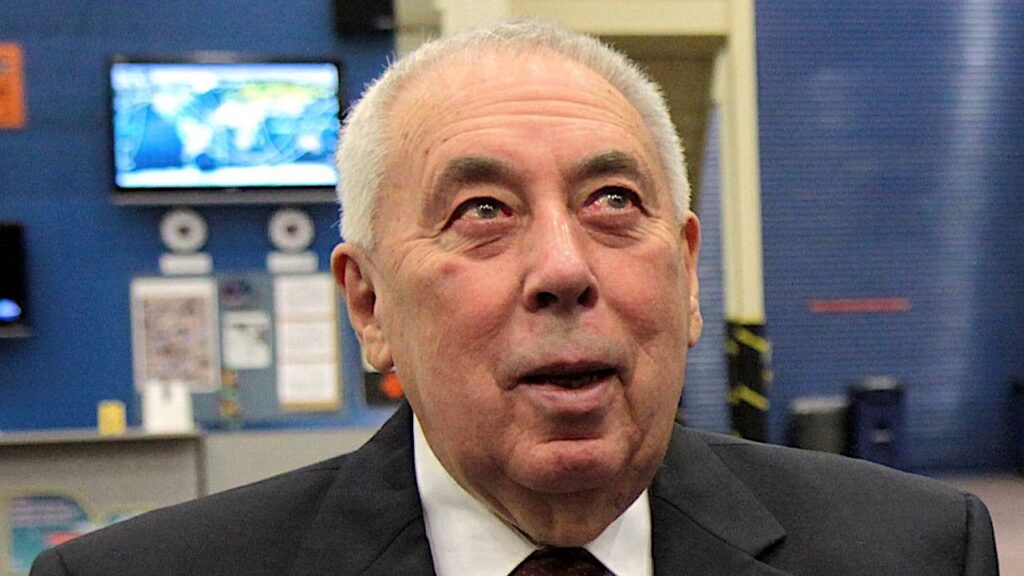
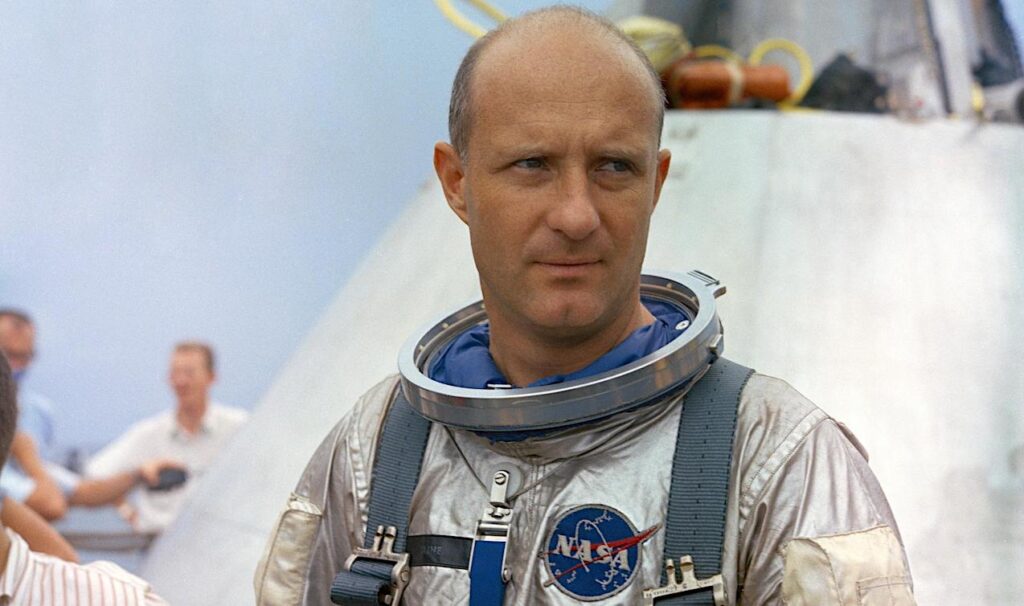

I’m glad he mentioned the Apollo 11 landing, even if it was just an apple pie comment and almost mandatory on the year of the 50th anniversary. But calling the crew “young pilots”? At 38, 39 and 38 years old, I’m not sure I’d call the Apollo 11 crew “young.” Younger than Mr. Trump, and younger than me, but I wouldn’t think that means they were kids.
Do you suppose they considered themselves old?
Well I turn 66 this month and I certainly would call them young.
JFK was 43 when he became president and he was considered young too. So I think saying they were young was accurate.
Young depends upon your perspective. I certainly felt young at 38 and 39. Twenty years later I would sure like to be 39 again.
At 65 I still feel young until my knees start getting grumpy.
With me it’s my lower back that causes problems. All it takes is one annoying health issue to realize you’re not 39 any more. Word of advice to those kids in their late thirties, enjoy your good health while you can.
That’s for sure. I didn’t start seriously looking over my shoulder until late, though a vegan life and practicing yoga and should help. But you can’t really “bank” it. In the end, something is going to get you. One of life’s mysteries is figuring out what it’s going to be.
Edit: Ugh, that’s dark. Sorry.
When I was in my late 30s, I felt quite old. Now, I’m in my mid fifties, I feel much younger.
I seem to have stepped on some toes with that comment… I was not implying that anyone who isn’t young is old (in the same way you wouldn’t assume anyone who isn’t short is tall.) I was thinking that it depends on the context, and that, to be worth mentioning, it means unusually or unexpectedly young or old.
For the qualifications and medical requirements NASA insisted on, late 30s or early 40s was about par for the course for astronauts. The Apollo 11 crew wasn’t, in my opinion and in context, so young that it’s worth mentioning. Sally Ride’s first flight was at the age of 32, and that’s young enough I’d consider it notable. (Gherman Titov, with a first flight at 26, would be even more so, but that’s outside the context of NASA requirements.) Similarly, Story Musgrave’s age on his last flight (61) is notable (and John Glenn’s second flight at 77 is also notable, but the selection involved more that the normal NASA selection process, so in context it’s a bit different from Musgrave.)
At the same time, NASA does have some standard for “young” scientists. Technically, it’s “early career” scientists, and there are several programs to encourage the careers of promising ones and help them establish themselves. The requirement is that an “early career scientist” is less than seven years from receiving his or her PhD. For most people, that’s 35 or 36. There is absolutely no implication that someone over that line is a “late career” scientist, or well on the way to retirement. There is actually a period between the “near the beginning” and “near the end.”
Ever heard a twentysomething talk about how she’s done something “her whole life”? Sitting on 70, a span of a mere decade doesn’t look that impressive.
And get off my lawn.
Unless you’re mowing it. 🙂
He’s a little quick to say it will happen this year. With all the slippage and shutdown (even if it isn’t to blame for date slips they sure don’t help) we’ve already watched DM-1 move a couple months back. I just hope spacex can eventually find a better customer than NASA, I can’t imagine how frustrating it must be as a company to have your main client be paralyzingly fickle and risk averse
At least they’re finally sending people up on Dragon 2 and Starliner. A pity it took eight years to get here on that.
It’s depressing to think that we’re probably at least a decade away from having people back on the Moon, and that’s if the US commits to a moon base as the next big “thing” for human spaceflight (and doesn’t fall into the Deep Space Gateway trap). It’s questionable whether any of the Apollo Era astronauts will live to see people walking on the Moon again. We couldn’t even have the test flyby with SLS in time for the Apollo 8 anniversary.
SpaceX is working hard to reduce that with their non-NASA Starship. While others were watching the Super Bowl Elon Musk was in Texas watching the first firing of the production version of the Raptor for it.
“It’s depressing to think that we’re probably at least a decade away from having people back on the Moon”
I’d say Moon by 2025, Mars by 2030.
Moon-by-2025 won’t happen unless somebody other than NASA is paying for it. It will take several years just to build a lunar lander craft that could be launched up, and NASA’s not even doing the lunar flyby test mission with SLS until 2022 at the earliest.
There’s no money for it in NASA’s budget, either, until ISS ends its mission.
BFR should be flying by 2023, quite possibly sooner. If it meets expectations as to expense, it should be possible to put together an expedition. The big question will be, does NASA want to participate or not?
I just want to live long enough to see it.
Elon Musk is saying that he is looking to do the first orbital tests of the Starship (Its no longer the BFR) later this year. Given NASA paperwork it may well be flying before Dragon2 actually carries a crew to the ISS.
https://www.nextbigfuture.c…
The orbital craft that may fly later this year is just a test article, an upgraded version of the Starhopper they are hoping to fly in the next few weeks. The actual, full up SPACE SHIP is still at least a couple of years away. Although they have managed to build Starhopper in a tent, an actual spaceship will require a factory, for which they have yet even to lay the foundation.
I absolutely refuse to use Elon’s *stupid* new names for his creation. It is the Big Falcon Rocket, which consists of the Big Falcon Booster and the Big Falcon Spaceship.
I’m not sure why you object to Mr. Musk’s names for his own spacecraft. It’s his, so he can call it whatever he likes. It’s even questionable if it was ever his idea to call it “Big Falcon Rocket.” He originally called it Mars Colonial Transport (MCT), which he later changed to Interplanetary Transport System (ITS), and then he changed it to “BFR” without saying what that stood for.
At the same time, he made some remarks which implied the “F” stood for a word the moderator of this web site doesn’t like people using. In fact, the idea that “F” is for “Falcon” is absurd, since the vehicle has essentially no heritage from the Falcon launch vehicles. The “Falcon” usage first appeared in the press, by reporters who didn’t want to use (or whose editors objected to) what it probably stood for. Space X, Ms. Shotwell in particular, picked up on that. I suspect that was because the issue of the name was becoming a distraction and they just wanted to settle it.
Now we get “Starship” and “Super Heavy”, which aren’t accurate (in the first case) and aren’t imaginative. But it’s his spacecraft, so he gets to name it. I just wish he could make up his mind and be consistent, because I’m sick of the confusion and discussion over what the “real” name is.
True, but then Starliner is also a poor name for the CST-100 capsule which is anything but a liner. That said I would like to point out the name changes have also roughly gone along with design changes in the next generation spacecraft Elon Musk is building, with the Starship having larger fins and appearly less payload then the BFR. It is also made of stainless steel rather then composites. Given his preference for fanciful names, and the space industry focus on acronyms, perhaps he should rename it the Revolutionary Aerospace Transport. ?
BFR.
I dunno. I thought Big Fu**ing Rocket was demeaning. Ignominious. Space travel is an honorable, glorious enterprise. It was fun, sure. But still.
That piece of hardware is going to become the standard against which other efforts are measured. It needs a proper name and I think Elon nailed it (even if it can’t go to the stars).
‘Starship’ is forward-looking and inspiring. I like it.
Elon Musk is paying for it, out of SpaceX revenues. It will just be up to NASA to decide if they want to buy a few tickets for their astronauts, or do it the hard way 🙂
When?
You know I wonder about that. In fact, I wonder if New Space and Old Space isn’t the hare and tortoise.
SX income stream will be from launching satellites for the foreseeable future. That is, until someone else figures how to do it for a similar price, and then what?
Elon has “hinted” that income from his satellite internet scheme will be an important revenue source in the future: enough to pay for his Mars adventure. Seems risky, and it seems like the dollars are way in the future after some unbelievable launch costs.
Then what? Is there a scenario where Old Space has plodded along fulfilling government contracts and is there at the end when the new guys flash out?
Yep.
And it’s not like anyone really has caught up on just how far SX has pushed accepted wisdom:
“Lander? What do I ned a lander for when I can just land my damn spaceship?”
Going to take some time for everyone else to realize that this isn’t your grandfather’s moon mission.